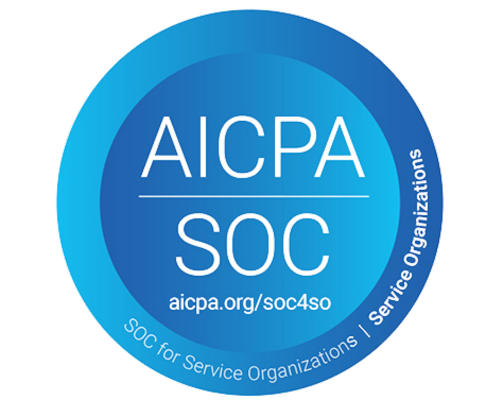How HR Teams Can Effectively Manage Unemployment Claims: Handling an Unemployment Hearing

An employee’s separation can often be a landmine of compliance mishaps for HR professionals tasked with overseeing unemployment claims and the appeals process.
Throughout the blog series, “How HR Teams Can Effectively Manage Unemployment Claims,” we’re taking a deep dive into the
unemployment claims process using insights from a recent
HRlogics UCM webinar.
In our last post,
HRlogics UCM’s
Josh Kendall, Chief Operating Officer, and
Joe Turner, VP of Unemployment Operations, discussed the unemployment claims lifecycle and how to effectively manage an unemployment claim. Here, we’ll look at navigating an unemployment hearing and offer best practices for successfully pursuing an appeal.
How Are Unemployment Hearings Conducted?
Most states conduct their unemployment hearings by telephone, especially post-pandemic.
“However, the state of Pennsylvania returned to in-person hearings, but there are rumors and rumbles that some other states could also go that direction,” cautions Turner. “There’s also a potential for Pennsylvania to return to primarily telephone hearings in the future, but as of right now, they are the only state conducting hearings in-person as standard practice.”
How Can I Successfully Win an Unemployment Hearing?
To successfully win a hearing, you’ll want to make sure that you've got all of the details, documents, and most importantly, first-hand witnesses available for the hearing because it's the last opportunity to present evidence and testimony in support of your position.
“The key for every unemployment hearing is preparing for it in advance, making sure you know what to expect and what you want to be prepared to present,” Turner explains. “So get your witnesses together, go through the details, and make sure you know the timeline of events from the time the claimant was hired through their separation.”
Steps to Take to Prepare for a Successful Unemployment Hearing
Turner says, "To start, you want to have the basic information related to the claimant’s employment available, such as hire date, last day of work, job title, and ending rate of pay."
"From there, the most critical piece to the puzzle is making sure you have witnesses with first-hand knowledge of what caused the claimant’s separation available to testify in the hearing," he adds. "The Hearing Officer is required to give the most weight to sworn, first-hand testimony provided during the hearing, so you need someone who can speak from direct knowledge."
"Quite often, employers make the mistake of having a member of HR attend an unemployment hearing alone, but in many cases, they are testifying from information that is provided to them by another individual," Turner cautions. "This results in their testimony being discounted as second-hand hearsay, which cannot be used to overcome the claimant’s first-hand account of the events."
Turner notes that in some states, even if the claimant does not attend the hearing, the law prohibits the Hearing Officer from finding a claimant disqualified based on hearsay testimony alone.
Next, make sure to provide all relevant documents such as warnings, violated policies, acknowledgment of handbook or policy receipt, or written resignation to all parties before the hearing.
In many states, Turner explains that all documentation provided at the initial claim level becomes part of the hearing file. However, in other states, the Hearing Officer starts fresh and requires all documents to be resubmitted to both the Hearing Officer and the claimant before the hearing.
Finally, Turner adds to make sure you know how you will be contacted for a telephone hearing. You may be able to pre-register for a hearing online in some states. You may also be able to fax or phone in your contact information in other states before the hearing. Some states just require you to call in on the day of the hearing.
Failure to attend a hearing, because you did not read the hearing notice for participation requirements, can result in loss of further appeal rights and forfeit your opportunity to have your evidence and testimony considered in the Hearing Officer’s decision.
“It’s important to have all the details available and know how you are to participate, so you're ready to go when that hearing is scheduled,” Turner stresses.
What Happens After an Unemployment Hearing?
After the hearing, the Hearing Officer will issue a written decision based on the evidence and testimony presented that finds the claimant eligible or denied unemployment benefits which replaces the state’s initial ruling.
Turner adds that the Hearing Officer’s decision provides you with one last opportunity to appeal to the next level and reminds us that there is now a new deadline associated with it.
“Everything in the unemployment world is driven by deadlines so make sure you know what your window is to file an appeal,” says Turner. “The last opportunity to appeal a case or have it considered in the unemployment arena is the Board of Review or the Commission level.”
What Happens If I Appeal the Hearing Officer’s Decision?
“The last opportunity to appeal a case or have it considered in the unemployment arena is the Board of Review or the Commission level.”, explains Turner. The Board of Review or Commission level is solely a review step where you file an appeal outlining why you feel that the Hearing Officer's decision is incorrect based on the evidence and testimony provided during the hearing. The Board or Commission typically consists of either a three- or five-person panel that reviews the case.
They're going to listen to the recording of the hearing, review the documents that were made exhibits in the hearing, and review the arguments in your appeal, then rule whether they feel the Hearing Officer’s decision is supported by the unemployment law. “So again, there is no opportunity to introduce new evidence or testimony. It is just a review step.” Turner adds.
“If two out of three or three out of five individuals on the panel feel it should be overturned, they will reverse the decision. If not, they affirm it. There is not a new hearing conducted.”, Turner says.
What Happens If I Appeal the Board or Commission Decision?
Either party has the right to appeal a case further for Judicial Review in the court system, which typically begins with the State Court of Appeals. “At this step, it is no longer you versus the claimant. It becomes you versus the unemployment agency and whether or not their decision is supported by the unemployment law,” Turner adds.
“I've been doing this for 25 years, and I've never been involved when an employer has filed a case for judicial review,” says Turner. “I've seen hundreds of appeals by claimants for Judicial Review, and in those hundreds of times, I've only seen two cases changed.”
“One of them was simply because there was not a section of law for that particular type of separation,” he adds. “So they kicked it back to the unemployment agency and the legislature to fix that flaw,” Turner suggests that it's very unlikely that an appeal for Judicial Review will result in a reversal of the Board of Review Decision.
“Almost every time, I can see the logic of how the unemployment law was correctly applied, although I may not agree with the interpretation of the claimant’s separation,” he adds. “With the slim chance of a case being overturned and the additional expense to obtain counsel to file an appeal into the court system, employers typically accept the Board or Commission’s decision, even if they still disagree with the state’s findings.”
Whether or not an unemployment claim makes it to the appeals process, if the claim is paid out to the employee, it could negatively impact your company’s bottom line by resulting in a higher unemployment tax rate and tax liability. We’ll dive into more detail about SUTA taxes and tax rate calculations in the next part of our blog series.
Can't wait for the next blog in this series? Watch the full webinar here.
Effectively Manage Your Company’s Unemployment Claims with HRlogics
Let HRlogics UCM (Unemployment Cost Management) take on the administrative burden of managing unemployment insurance claims. Whether you are looking for full-service unemployment claims management — offering a hands-on approach with expert guidance — or looking for self-service software for in-house efficiency, employers gain a reliable partner in the unemployment process.





